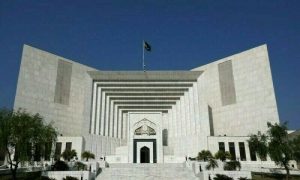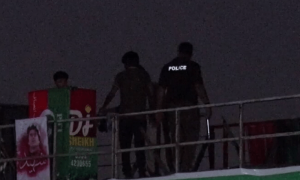

The Azad Jammu and Kashmir High Court on Friday granted bail to poet and journalist Ahmed Farhad Shah and ordered his release if he was not wanted in any other case.
Shah, who had gone missing from his Islamabad residence on May 15, had surprisingly “re-surfaced” in Gujjar Kohala, a village near the AJK border with Khyber Pakhtunkhwa, on May 29 when the Islamabad High Court (IHC) was hearing a petition seeking his recovery.
The court was informed by AGP Mansoor Usman Awan that Shah had been arrested under Section 186 of the Azad Penal Code (APC) — the AJK version of Pakistan Penal Code — and was kept at the Dhirkot police station of Bagh district.
Later, the same afternoon, Shah was handed over to Saddar police station in Muzaffarabad, where he was booked under nine sections of APC and one each section of Telegraph Act and Anti-Terrorism Act according to a statement given to his family by Dhirkot police.
Last week, an AJK anti-terrorism court (ATC) had agreed with the contentions of the prosecution and rejected Shah’s bail plea, holding that the legal points advanced by his counsel did not apply to the case in hand.
Shah had subsequently filed a bail petition in the AJK High Court.
AJK High Court Chief Justice Sadaqat Hussain Raja presided over a hearing on the bail petition today. Granting the request, he ordered Shah to be released after furnishing a bail bond at Rs200,000 and a personal bond in the like amount.
The written order, a copy of which is available with Dawn.com, said that it remained to be determined whether Shah had committed any of the charges or allegations against him.
“These allegations are all contingent upon the presentation of crime,” the order said.
It said that prima facie, Shah was entitled to the concession of bail in the case.
“It is essential to emphasise that law could not be stretched in favour either of the defence or the prosecution for purpose of bail and it is settled principle of law that bail could not be withheld as punishment and in case where the court would feel that it was a case of further inquiry.”
The high court subsequently set aside the ATC’s June 4 order.







